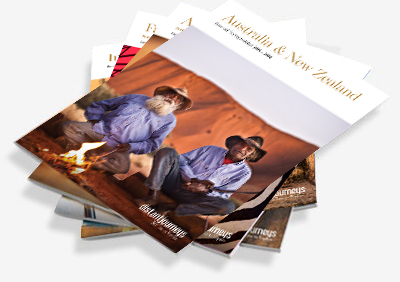JAPAN FAQ’s
 Find the answers to some of the most frequently asked questions from our customers
Find the answers to some of the most frequently asked questions from our customers
-
Is there a time difference?
Japan is GMT +9 hrs.
-
What is the currency?
Japanese Yen
-
What will the weather be like?
On Japan’s island of Honshu (the main island) you’ll find a climate that is mostly temperate, with four distinct seasons. Spring and autumn are generally mild throughout the country. The best time to visit Japan is usually from March to May, the cherry blossom season; equally September through to November are popular for the spectacular autumn foliage.We recommend checking up-to-date weather forecasts before you travel.
-
What clothing should I take to Japan?
Dress for our tours is generally relaxed and informal during the day, dressing to suit the weather conditions and the activity you are undertaking. It’s likely there will be occasions when exploring you’ll be walking on uneven surfaces, so we recommend sturdy and comfortable walking shoes. Wearing layers of clothing means it’s much easier to deal with potentially varied weather conditions and it’s always advisable to carry a waterproof. Any included evening dinners are also informal, with smart casual dress being the norm. We would also recommend taking good insect repellent, a high factor sun-screen lotion and a hat for protection from the sun.
-
Japanese etiquette
Japanese people are extremely polite and welcoming (one of the best things about visiting Japan), but many visitors worry about accidentally offending them by saying or doing the wrong thing.
Bear in mind is that Japanese people don’t expect you to know all of their customs and etiquette, but a few basics are useful. Here are a few helpful tips:
Chopsticks(Ohashi)
There are many rules around the use of chopsticks, but here are a few key things to keep in mind; Never point your chopsticks at another person, wave them in the air, or spear food with them and avoid putting your chopsticks upright into a bowl of rice.Handing over money when paying
In Japan, money is rarely passed directly from hand to hand. This means that when you purchase an item or service, you won’t hand money directly to the cashier. Instead, you’ll place your payment (whether cash or credit) on the small tray provided. If change is due, your change will be placed here for you as well.Removing your shoes
In Japan, it’s common to remove one’s shoes before entering certain buildings, such as ryokans (Japanese-style inns), temples, and at traditional restaurants. Bring shoes that slip on and off easily, and neat socks, too – they’ll be on display often!Bowing
Japanese people bow when greeting one another. If you’re used to shaking hands when meeting people, it may be difficult to get used to bowing instead of shaking hands. But don’t worry: many Japanese people are accustomed to shaking hands when meeting non-Japanese. Bowing is also used when thanking someone. At hotels, ryokans, shops, and restaurants (particularly at higher-end establishments) it’s common for staff to bow deeply to customers. -
How much should I tip in Japan?
Tipping in Japan is not common practice and in most instances such as in restaurants and bars, or taxis, should be avoided as it is more likely to cause confusion, or even offence. There are some exceptions, such as your local guide, where whilst not expected, if you believe it is deserved it will be graciously accepted. Of course, with Japan there is always a little bit of etiquette, so if you do wish to tip your local guide, we suggest putting clean bills into an envelope and then, using both hands discretely hand to your guide.
Tipping is always discretionary, however if you are happy with the service provided, we would suggest the following amounts:
Tour Manager: £2 – £4 (JPY 400 – 800) per person per day
Local Guides: JPY 200 – 500 per person per day
Drivers: JPY 100 – 300 per person per day -
What are the entry requirements for Japan?
The following information on entry requirements, passports and visas is for British citizens only. Holders of a British Subject passport, non-British citizens and holders of a passport endorsed in any way should check immigration requirements with the relevant embassy or consulate of the country to be visited, as should clients with dual nationality or renounced citizenship.
-
Do I need to renew my passport?
A valid ten-year British passport is required for all holidays, valid for a minimum of 6 months after your return date to the UK. If you are not currently in possession of a valid passport, please make sure you leave plenty of time before your holiday to apply for this document. Our recommendation is that you should apply at least three months before your holiday.
-
Will I need a visa to enter Japan?
No.
For more information on passport information and entry requirements please visit the Government Passport Office website www.gov.uk/browse/abroad/passports and the Foreign Office website: www.gov.uk/foreign-travel-advice
Please note entry requirements may change and it is your responsibility to ensure you are in possession of all necessary travel, passport, visa and other entry requirements before departure. All costs incurred in obtaining such documentation must be paid by you. We regret we cannot accept any liability if you are refused entry onto any transport or into any country due to failure on your part to obtain and carry all required documentation.
-
Do I need to have any vaccinations?
Health facilities, hygiene and disease risks vary worldwide and may change at any time. You should take health advice from your GP or local travel clinic about your specific needs as early as possible and ensure that vaccinations or preventative measures are taken early enough (which may be a month or more prior to departure) to be fully effective by the date of travel.
We also suggest referring to the Foreign, Commonwealth & Development Office (FCDO) website, https://www.gov.uk/foreign-travel-advice and the NHS Travel Vaccinations website, https://www.nhs.uk/conditions/travel-vaccinations/
BOOK WITH CONFIDENCE
Award-winning Holidays
Distant Journeys has won 23 awards over the last seven years, at the British Travel Awards, and we have been awarded Feefo’s highest Platinum Trusted Rating for customer satisfaction.
Guaranteed Price Promise
Know you are paying the best price for your holiday with our Price Promise. We never offer last minute discounts and we guarantee the earlier you book the better the offer you’ll receive.
100% Financial Protection
Book in the confidence your money is 100% safe. All Distant Journeys holidays are fully bonded by the Civil Aviation Authority (ATOL number 10913) or ABTOT (number 5427).
ORDER YOUR BROCHURES TODAY

Planning your next holiday? Let Distant Journeys give you some travel inspiration.
There are three easy ways to request your brochures – just click on your preferred option below:
online brochures |
your brochures |
brochures by post |
CUSTOMER REVIEWS






